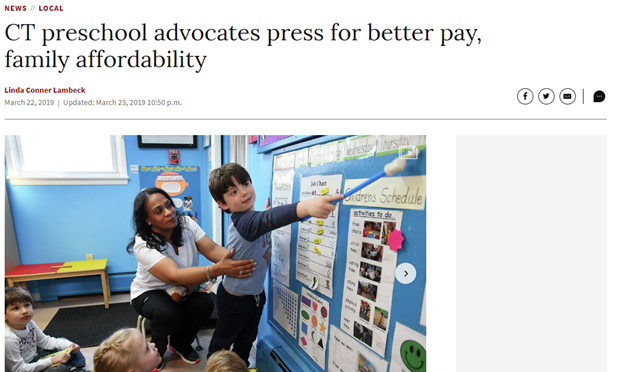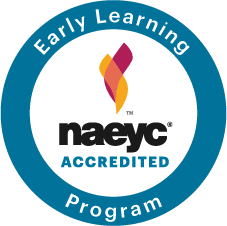Honey Bear helps advocate for better [teacher] pay, and family affordability

Jacqueline Valle’s love for early childhood education began in the basement of Good Shepherd Christian Church on Hancock Avenue in Bridgeport. Something about working with small children in a Bible study class gave the city teen a warm feeling. By the time she was 17, Valle was working part time in the infant and toddler classroom at Cambridge Manor in Fairfield and set aside thoughts of a career in business administration to pursue what she calls a passion. She didn’t realize it was a passion that comes with a hefty price.
“As an early childhood professional and single parent of two boys, I have struggled to make ends meet at times,” said Valle. It was a career that expected her to get an early childhood degree in exchange for minimum wage pay.
Now head teacher at Honey Bear Learning Center in Stratford, Valle makes more, but not what she is worth, according to her boss. And she oversees a staff of 10 teachers, many of whom are in the same boat she was in 23 years ago. Between low salaries and what is costs to stay credentialed, Valle and others say they’d make more working at Costco.
“Everyone understands it is an issue that needs to be dealt with”, said State Representative Robert Sanchez, D-New Britain. |We want everyone to get a trade or a college degree. We want people to work, but we are not doing that in this state. We need to be more proactive. It is time for Connecticut to wake up and do this.”
In 2018, the state Department of Labor said child care workers on average, excluding the public school system, make $12.21 an hour. At the same time, many parents struggle to pay a preschool tuition in Connecticut that averages $13,880 a year for infant care, according to the Economic Policy Institute. For 4-year-olds, the annual average is $11,502.
As house chairman of the legislature’s Education Committee, Sanchez is well aware of the struggle. He is a Head Start alum who has spent his career in early childhood education. Sanchez has pushed forward a half-dozen bills that have sailed through his committee and on to the Appropriations Committee. Collectively, the proposals would boost pay for child care workers, up the state’s contribution to child care slots and vouchers, expand eligibility for state subsidies and make it easier for child care working to afford the college credentials required of them. “They are all good bills, but they cost,” Sanchez acknowledged.
Click the link below to read the full article on Ctpost.com
https://www.ctpost.com/local/article/CT-preschool-advocates-press-for-better-pay-13708754.php#photo-17109389

